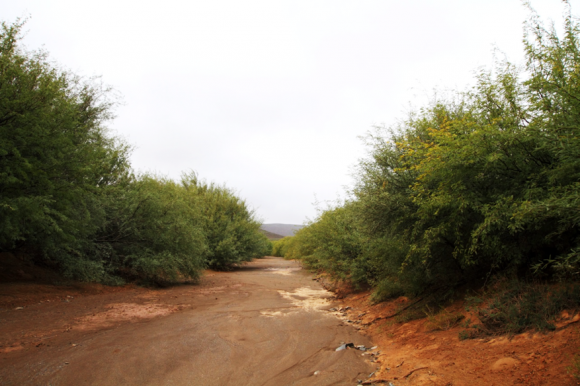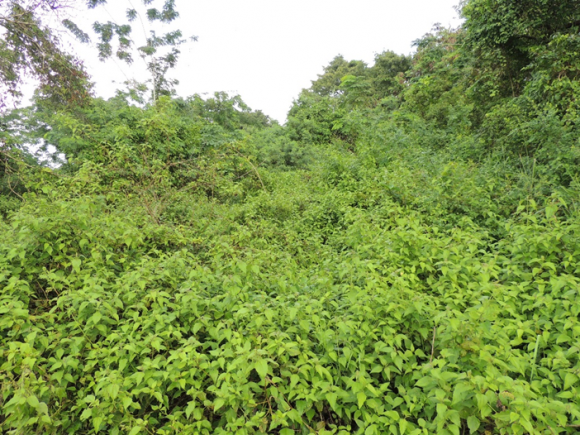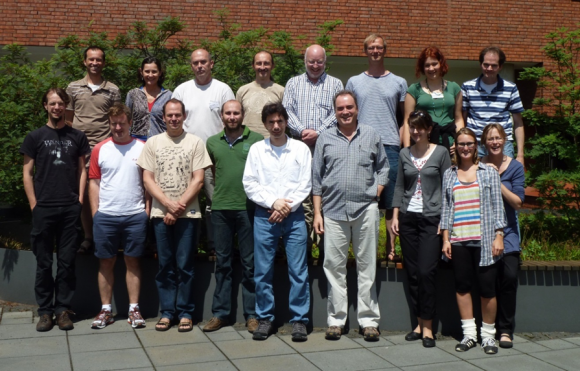Species have been moved around the world for many reasons and have led to the rise of biological invasions which are a major driver of ecological and social change globally. One such species, Prosopis (mesquite), has been introduced to over 100 countries globally, both accidently and purposefully to act as an agroforestry tree.
Prosopis was introduced into the arid parts of South Africa to help farmers with fodder and shade for livestock and as a source of firewood. It has since become the second most widespread invasive tree species in South Africa.
The negative effects of Prosopis and other invasive species has led to the initiation of programs to manage these invasions across the world and are a key need as highlighted in the Convention on Biodiversity (CBD). In South Africa, the Working for Water (WfW) program drives management on state and private land along with input from private land owners. Management initiatives aim to reduce impacts and in some cases improve the benefits that some invasive species can provide.
A study by C·I·B post-doctoral researcher, Ross Shackleton, assessed the barriers that hinder the effective management of Prosopis invasions in South Africa amongst different stakeholder groups. “To date, we are unaware of the systematic investigation into barriers faced by natural resource management programs, making this study important. We used questionnaire surveys and focussed workshops to identify barriers and adaption responses in four key stakeholder groups (academics, farmers, WfW managers and WfW labourers) involved in different stages of Prosopis management,” explains Shackleton.
More than 100 barriers to effective management of Prosopis were identified, most of them relating to social issues. Key barriers related to limited knowledge, economic factors, conflicts of interest, the ecology of the genus and the nature of the invaded land, as well as poor planning, co-ordination and co-operation, and a lack of prioritisation. There were marked differences in how stakeholders perceived the importance of some barriers. Most Farmers (>80%) placed high importance on a lack of strategic planning and poor control implementation as important barriers, while a few managers (<20%) regarded these as important. Managers suggested that poor partnerships between stakeholders was a major barrier and Academics suggested that inadequate monitoring was a problem which were factors was not raised as important by other stakeholders. This reflects different views about the context in which management projects operate and shows the importance of engaging multiple stakeholder groups to get a holistic picture.
Key adaption responses to address these barriers include the use of more effective clearing methods (mechanised options and biological control), raising awareness, building partnerships, improving monitoring, reducing inefficient management and incorporating strategic planning at various levels to improve the effectiveness of control programs with the funding available.
To read the paper by Ross Shackleton
For more articles on Prosopis as a widespread invasive tree
- Shackleton R.T., Le Maitre, D.C. and Richardson, D.M. (2015) Prosopis invasions in South Africa: Population structures and impacts on native tree population stability. Journal of Arid Environments, 114: 70-78.
- Shackleton R.T., Le Maitre, D.C. and Richardson, D.M. (2015) Stakeholder perceptions and practices regarding Prosopis (mesquite) invasions and management in South Africa. AMBIO, doi 10.1007/s13280-014-0597-5.
- Shackleton, R.T., Le Maitre, D.C., Van Wilgen, B.W. and Richardson, D.M. (2015) Use of non-timber forest products from invasive alien Prosopis species (mesquite) and native trees in South Africa: implications for management. Forest Ecosystems. doi: 10.1186/s40663-015-0040-9.
- Shackleton R.T., Le Maitre, D.C. and Richardson, D.M. (2015) The impact of invasive alien Prosopis species (mesquite) on native plants in different environments in South Africa. South African Journal of Botany, 97: 25-31.
- Shackleton R.T., Le Maitre, D.C., Pasiecznik N.M., and Richardson D.M. 2014. Prosopis: a global assessment of the biogeography, benefits, impacts and management of one of the world’s worst woody invasive plant taxa. AoB Plants, 6: plu027, doi: 101093/apbpla/plu027.
Contact Details
Dr Ross Shackleton
DST-NRF Centre of Excellence for Centre for Invasion Biology (C·I·B), Stellenbosch University
Email: rtshackleton@gmail.com



